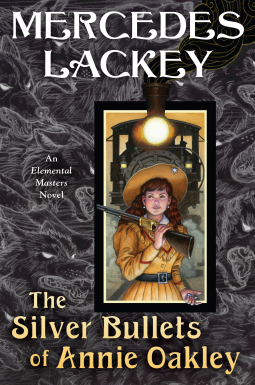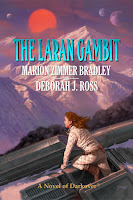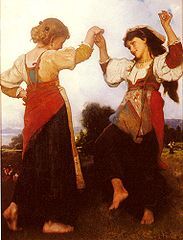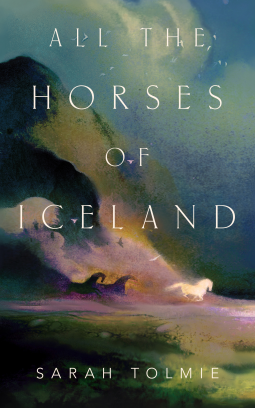Deborah J. Ross's Blog, page 23
December 9, 2022
Short Book Reviews: A Disappointing "Elemental Master"
 The Silver Bullets of Annie Oakley (An Elemental Masters Novel), by Mercedes Lackey (DAW)
The Silver Bullets of Annie Oakley (An Elemental Masters Novel), by Mercedes Lackey (DAW)I have been a fan of Mercedes Lackey’s “Elemental Masters” series for a long time. My favorite so far is Phoenix and Ashes, a Cinderella story where the prince is a WWI veteran with PTSD. I grabbed the latest with anticipation. Annie Oakley with Elemental Master powers? How will she use her silver bullets?
The story begins with a nightmare memory of her impoverished childhood and the malevolent nature of the couple she’s hired out to work for. I expected the man whom she calls “He-Wolf” and who plants a curse on her would loom throughout the book as the Big Bad, that her internal struggle would free herself of her fears, and that a showdown would involve silver bullets (against werewolves, according to canon). The action itself opens on a European tour of Buffalo Bill's Wild West Show and the introduction of Frida, a German woman sharpshooter, who happens to be an Elemental Master of Air. To no one’s surprise, not mine, both Annie and her husband have rare magical abilities, which they proceed to hone by studying with Frida and her husband. During the winter, they join in the hunt for nasty supernatural creatures, and Annie’s superb marksmanship and magical abilities prove an asset.
Most of the story reads like a leisurely travelogue of Europe, with details of places they travel through, the meals they eat, daily life in the show, how to take down and put up tents, their hosts in every town, and so forth, not to mention the magical exercises and mystical creatures, all lovingly laid out on page after sedate page. Characters talk at length about what is going to happen and who they are going to meet before the events themselves. Everything is so predictable that the sense of danger is minimal when it’s present at all, even during the nocturnal hunts. The confrontation with He-Wolf doesn’t come about until the very last pages, and even then, Annie is not in any real danger. She has one brief moment of childhood panic before she resolves the situation. There’s no internal struggle, no doubt of the outcome, and no remorse at what she’s done. While she was notable in negotiating with supernatural creatures during the Hunt, she never attempts to do that with the He-Wolf, which would have been a compassionate overture but also a huge step toward recovery from her childhood trauma.
The pacing, the resolution, the flat dramatic arc, and the overall sedate pace lag when compared to earlier “Elemental Masters” books. I’ve noticed that Lackey’s recent Valdemar books are written less tightly than the early ones, but they have more dramatic impact than this one. I presume that long-time fans enjoy a leisurely stroll through their favorite fantasy world. The “Elemental Masters” books are stand-alones, so the stories must be complete and engaging. I hope The Silver Bullets of Annie Oakley is not a forewarning of a tedious future.
December 5, 2022
Shall-Be-Nameless Magazine Review
Every once in a while, I post a review of a magazine. Usually, it's done something to tick me off and I want to vent. Unreadable print ranks high on my list of no-nos.
For many years, I was a fan of a healthy cooking magazine. It provided me with wonderful recipes and articles about the chemistry of cooking. It changed its name, and I faithfully followed it into new territory. If there were fewer recipes that appealed to me, there were more articles on how food is grown, as well as other aspects of health. Last year, that incarnation went belly-up. I received a notification that the remainder of my subscription - all 3 months of it - was being transferred to a general "good living" magazine. I was assured of many healthful, delicious recipes.
The first issue had one, exactly one, article I was interested in (the varieties of lavender bushes).
The next issue (summer 2022) contained:
The cover features a man wearing huge beads, nail polish, and a tattoo of a cross. He is grinning widely, showing unnaturally white teeth. I've never heard of him.
Article 1: A list of "summer fun" events sure to be Covid super-spreaders.
Article 2: "For the dad who has it all": a collection of gender-stereotyped merchandise I'd never buy for anyone.
Article 3: "Pool party" featuring blow-up pools large enough to accommodate several adults. In my area, water restrictions forbid filling pools. Don't the magazine folks realize that some of us live in drought zones?
A bunch of articles on makeup, with or without SPF. Yawn.
Article 4. A remodeled porch, with many pages of interior decoration porn.
Articles too-many, more interior decoration that would be way beyond my budget even if I could stand to look at it. Chairs designed to give you crippling back pain. Fabric upholstery my cats would love as scratching posts. Wall paint so dark as to create instant depression. Kids' rooms no self-respecting child would enter.
Article 5. Ah, gardening. Planters with trellises. Nope, nope, nope. Well, maybe, if I wanted to grow only 2 bean plants. Nope, nope, nope.
Articles more-too-many. You've-got-to-be-kidding-me style decor, complete with a plaque that says, "You're a mess." Yep, you are.
More sure-to-drive-kids-insane decor. More gloom-inspiring wall paint.
Article 6: "Egg bites"???
Article 7: Ah, some actual recipes, beginning with hearty salads. I think maybe I can work with this...until I look at the nutrition information and see sodium levels that start at 500 mg/serving and go upwards of 1,500 mg/serving. In what universe is this healthy??? (The American Heart Association recommends no more than 2,300 mg a day and moving toward an ideal limit of no more than 1,500 mg.) You could get your entire day's allowance of sodium in just one salad!
Article 8: Cover guy in "Finding Home." Wearing pajamas, then wearing 1890s-style onesies. Wearing...what is that thing? I'm so uninterested in this person I don't recognize and who seems bent on warping his spine that I'm anti-interested.
Article 9: Drinks, all of them containing alcohol. Many pages' worth.
Article 10: Summer gatherings in this family's garden. Same back-pain-inducing furniture, but the garden looks nice. They have a cute dog. Maybe an outdoor meal might be safe...oh no, now they're indoors. Still, they look like a nice family.
Article 11: More decor, described as "exuberant patterns and joyful color." Too busy, too impersonal, too aggressive on the eyeballs. Does anyone actually spend time in these rooms?
Article 12: More salads, these arranged on large platters that look pretty but are designed to make sure (a) ingredients are distributed unequally; (b) there will be unusable leftovers. But I'll take a look. I like salads. I see 654 mg sodium...1.064 mg sodium...wow, here's one with only 470 mg. sodium but 42 grams of fat...at least most of it's unsaturated, but depending on your caloric intake, that could be an entire day's fat allowance. (See the above-recommended limits on sodium.)
I'll pass.
After I toss the issue in recycle bin.
There, I feel much better.
December 2, 2022
Book Reviews: Cool Idea, Confusing Bummer Ending
 Book description: “Vanja, an information assistant, is sent to the austere, wintry colony of Amatka to collect marketing information. Intending to stay just a short while, she falls in love with her housemate and prolongs her visit. But when she stumbles on evidence of a growing threat to the colony and a cover-up by its administration, she embarks on an investigation that puts her at tremendous risk.”
Book description: “Vanja, an information assistant, is sent to the austere, wintry colony of Amatka to collect marketing information. Intending to stay just a short while, she falls in love with her housemate and prolongs her visit. But when she stumbles on evidence of a growing threat to the colony and a cover-up by its administration, she embarks on an investigation that puts her at tremendous risk.” Told through deceptively simple prose, Karin Tidbeck’s Amatkadepicts a world chillingly reminiscent of George Orwell’s 1984. Layers of bureaucracy and social conditioning create the illusion of a happy community, while despair, disease, and alienation produce attrition and threaten the city’s survival. Social and psychological disintegration parallel the breakdown of the physical environment. Objects large and small must be constantly marked with written labels or names spoken aloud or they break down into amorphous goo.
The use of language in creating and maintaining reality is one of the more creative I’ve seen. I admired how Tidbeck introduces her world with very little explanation, using subtle clues layered into the otherwise prosaic action. For most of the book, I had a pretty good idea of what was going on: the mutable nature of matter, the increasing suppression of dissent, the enforcement of conformity, and the inexorable loss of history. I was curious about how humans had come to live in a world in which the basic rules of physics were so plastic and what the underground resistance was about, but I was also confident that the answers would be made clear.
The publisher describes this book as, “A surreal debut novel set in a world shaped by language in the tradition of Margaret Atwood and Ursula K. Le Guin.” The only part of this description I agree (other than “debut”) with is “surreal.” Atwood and Le Guin created imaginative, provocative stories, but their work is accessible to most readers. There’s a difference between being mysterious and mystifying. As I waited for the answers to the many questions Tidbeck raised, she piled mystifying upon mystifying until I had no idea what exactly Vanja was discovering (other than that the commune was re-using stable “good” paper for announcements).
The book ends with Vanja acting in an erratic, destructive manner, setting fire to the records she previously treasured, and then being lobotomized so that when she’s freed, she no longer possessed the speech that would allow her to re-shape the world as part of the resistance. I don’t mind grimness, but such a downer puts Amatkasquarely in the 1984 camp. This could have been such a cool book, too, with a denouement that made all the sacrifices worth it. After earning my trust as a reader, Tidbeck dropped the ball royally. I doubt I’ll pick up anything of hers in the future. To be fair, however, I don’t think the disappointing ending is entirely Tidbeck’s fault; it’s what happens when pretentious literary editors take on genre projects.
November 29, 2022
Support Borderlands Books!

Support Borderlands Books, an indie bookstore, and get a hardcover copy of The Laran Gambit with a bookplate autographed by me. Link here.
November 28, 2022
Guest Post: Do Women Make Better Leaders?

My older daughter, Sarah, currently a college student, earned praise for her essay on the leadership role of women. With her permission and no small measure of pride, I share it with you.
The assignment was: Some theorists have suggested that the world would be a much better place to live (i.e., fewer conflicts, wars) if women held all the positions of leadership. Do you agree? Why or why not? Do women in positions of power tend to behave in more stereotypically female (caring, nurturing) or male (aggressive, dominant) ways?
Would the world be better off if it was run by women? This deceptively simple question is best broken down into components: Are individual women better leaders than individual men? Does the culture of leadership drive women in positions of power to behave in stereotypically male ways? And, What is the effect when the majority of leaders in the legislative space are female?
The first two sub-questions are related. Are individual women superior leaders? Perhaps not, because for every Jacinda Ardern or Angela Merkel there may be a Margaret Thatcher or Marine Le Pen. Perhaps the character traits expected by the electorate, and the strategies employed by powerful women to attain and defend their status, weeds out individuals who behave in a cooperative, nurturing manner. It is quite plausible that the culture of power, or the traits demanded of leaders regardless of gender, is so pervasive that the theoretical advantages of female leadership are eliminated. What does the data show?
A Forbes analysis indicated, and an academic analysis later confirmed, that the countries which fared best during the pandemic were led by women: Germany, Taiwan, New Zealand, Iceland, Finland, Norway and Denmark all took the pandemic seriously and took early steps to safeguard health. This association has been found to be systematic among a sample of 194 countries (Garikipati & Kambhampati, 2020). Iceland’s Prime Minister Katrín Jakobsdóttir instituted free testing, while Taiwan’s Tsai Ing-wen instituted 124 pandemic-curbing measures early, in January of 2020, and by April were sending face masks abroad. Their success is punctuated by the expression of traditionally feminine traits: Norway’s Prime Minister Erna Solberg went on live television to reassure children that it was okay to feel scared. Just try to catch a strong-man leader such as Bolsonaro or Putin doing that! (Wittenberg-Cox, 2020)
Female leadership was a clear advantage, and life-saver, during the pandemic. However, the benefits are less clear-cut when it comes to warfare. Though the perception that women would be less likely to go to war is popular and widespread, the counter-examples of Margaret Thatcher ordering the sinking of the Argentine ship Belgrano in 1982 and of the “dangerously aggressive” North Korean President Park Geun-hye who was in office 2013-2017 prove that gender is not entirely protective against military aggression. (Elsesser, 2022) The authors of “Why Leaders Fight” determined that 30% of male leaders initiated at least one militarized dispute, while 36% of female leaders did so; however, in part due to the disparity of sample sizes, these statistics are misleading: this 36% of female leaders equates to 13 acts of aggression and one war, while the 30% of male leaders who did so equates to 694 acts of aggression and 86 wars (ibid). Writing for Cambridge, Schwartz & Blair (2020) found that female leaders “combat gender stereotypes that women are weak by acting ‘tough’ during international military crises.” They also found that female leaders experienced greater “inconsistency costs” when backing down from threats than their male counterparts, which may pressure them to follow through. In military action at least, we do find that the cultures of power and of male leadership pressure female leaders to behave in more stereotypically masculine aggressive ways, and they are less able to back down from threats.
The behavior of female leaders in military situations appears to be an effect of conforming and performing to masculine leadership culture. What happens when the leadership environment is female-majority? Here we turn to the example of Nevada, the legislature of which became female-majority (51%) in 2018. In 2019, this legislature took action to compensate firefighters who develop breast, uterine and ovarian cancer; required companies of a certain size to provide 40 hours of paid leave; specified fines for companies which knowingly practice gender pay discrimination; made critical reforms to their abortion laws and restrictions; and passed a series of laws addressing sexual assault and domestic violence. (Cheung, 2020) Even though female legislators were barely in the majority, they immediately made life substantially better for Nevada women and workers.
Therefore, although female executive leaders in military situations currently feel pressure to conform to masculine stereotypes to defend their leadership worth, we may conclude that a world leadership stage which is female-majority would be beneficial to the globe. Female leaders made superior decisions during the pandemic, and female-majority legislative spaces (or at least, the sole example currently available) take care of their residents in arenas long neglected by male representatives. Therefore, the world would indeed be better off if it was run by women.
References:
Cheung, Helier. “Did First Female-Majority Legislature in US Make a Difference?” BBC News, 4 Mar. 2020, bbc.com/news/world-us-canada-51623420.
Elsesser, Kim. “Sheryl Sandberg Says Female Leaders Don’t Go To War. Here’s What Research Says.” Forbes, 8 Mar. 2022, forbes.com/sites/kimelsesser/2022/03/....
Garikipati, Supriya, & Kambhampati, Uma. “Leading the Fight Against the Pandemic: Does Gender ‘Really’ Matter?” SSRN, 3 June 2020, papers.ssrn.com/sol3/papers.cfm?abstr....
Schwartz, J., & Blair, C. (2020). Do Women Make More Credible Threats? Gender Stereotypes, Audience Costs, and Crisis Bargaining. International Organization, 74(4), 872-895. doi:10.1017/S0020818320000223
Wittenberg-Cox, Avivah. “What Do Countries With The Best Coronavirus Responses Have In Common? Women Leaders.” Forbes, 13 Apr. 2020, forbes.com/sites/avivahwittenbergcox/....
November 25, 2022
Short Book Reviews: A Cat in London Tower

Thunderpaws and the Tower of London (Nature's Claw Series, Book 1), by Ben Housden (High Gate Press)
When Teufel the cat (who hates his nickname, “Thunderpaws”) moves into the Tower of London with his chaplain owner, he is less than thrilled. The trip itself, including being sedated and transported, was bad enough, but now he finds the new rules insufferable: no doing his business on the lawn, no wandering at all hours, and no chasing the sacred ravens. Teufel is a Cat of Attitude, snark being primary among them, and he is not about to play nicely or restrain his innate Cat Nature. In his attempts to exercise his feline right to kill small prey and anything with wings, he encounters a mystical mouse, a couple of ghostly cats, and the deceased spirits of humans who have died in the Tower. Queen Anne, Lady Jane Grey, and Sir Walter Raleigh are bad enough, with Anne planning to destroy the internet. But when King Richard III and Guy Fawkes hatch a plot to take over London (and the world), Teufel is drawn in to a maze of dark schemes and darker magic. As it turns out, he’s not nearly as savvy as he thinks he is.
Among the many delights of the book are Teufel’s sarcastic voice, details about the ghosts, and the army of lady rats led by a giant rat named Elvis. I wish there had been more exploration of how Teufel changes with his misadventures, especially those that were his own fault. It was a good thing I read the book on my Kindle, because quite a number of references that would have been obvious to Londoners escaped this Californian at first.
My only real issue, however, was the extended epilogue. It’s one thing to set up a sequel, but to go on at length detracts from the satisfaction of defeating the agents of evil and then taking a break. Sequels, as opposed to books in a single multi-volume story arc, run the risk of being episodic, especially when the beginning of the next is inserted into the end of the first, thereby making it not a true end at all.
Despite my quibble about the epilog, this book should have special appeal to cat fanciers (and perhaps Londoners). The illustrations are particularly wonderful.
November 24, 2022
Happy Thanksgiving: Hard Sauce recipe
In case your dessert wasn't rich enough, here's a delectation to top it with. It's incredibly sweet and rich, compared to ordinary whipped cream. This recipe comes from my first mother-in-law and I believe it had been in her family for several generations. This version is in my (then teenaged) daughter's handwriting and is transcribed as written. See the note below.
Hard Sauce
1/2 c. sugar
1/2 c. butter
1 tsp. vanilla
1/2 c. condensed* milk
1 Tbsp. flour
Mix sugar and butter well.
Cook flour and milk into a THICK paste.
When paste is body temp, combine with butter and sugar.
Beat on high speed until sugar granules are gone. Add in vanilla and beat until mixed.
Enjoy.
*It is not clear to me whether this means sweetened condensed milk or unsweetened evaporated milk, although I suspect it's the former. If you prepare this recipe, please let me know which you used and how it turned out.
November 21, 2022
Gifts to Give Yourself This Season

Give yourself a break.
Give yourself grace when you make a mistake.
Give yourself credit for your accomplishments.
Give yourself permission to ask for help.
Give yourself the same compassion you give to those you love.
Adapted from Mirror Coaching
November 18, 2022
Short Book Reviews: A Fabled Journey to the East, With Horses
All the Horses of Iceland, by Sarah Tolmie (Tordotcom)

In a long-ago time, a Norse trader embarks upon an expedition to Central Asia in search of riches. He hooks up with an experienced Jewish merchant as they travel through Khazaria to the steppes of Mongolia, through war-ravaged territory and vast, open lands. He encounters new peoples and their magic, bringing the wisdom of his people and learning much more. When he returns to his home in Iceland many years later with a herd of tough steppe horses, led by a white mare without a name that sometimes only he can see, he is a changed man.
The best thing about this short novel is the wonderful authorial voice. Tolmie conveys both familiar and unfamiliar customs and assumptions without modern exposition. That is, Eyvind remarks on events from the context of his own culture and understanding of others, not from a modern narrator’s viewpoint. The effect is to immerse us into a world view informed by his open-mindedness. He takes the customs and teachings of the people he encounters on their own terms, with an occasional dry and witty comment. He’s incredibly generous, even when he disagrees. His open-mindedness evokes an open landscape, both of thought and of physical distance. It’s very deftly done. While there is plenty of adventure to be had, for me the heart of the story is very much the exploration of a vivid world only hinted at in history books.
November 11, 2022
Book Review: Love and Survival Under the Iron Heel
In Light’s Shadow, by Warren Rochelle (JMS Books)

This dystopic urban fantasy blends a sweet m/m romance, a coming-of-age story, and a horrific alternate-history world. Magic and magical creatures exist, although throughout the history of this world’s United States, the Columbian Empire, they have been progressively more restricted and then criminalized. Even a hint of returning the “the Relaxation” is enough to ignite assassination attempts. Meanwhile, fairies are locked away in ghettoes or have gone into hiding, and magical beasts, such as gryphons and unicorns, are kept in zoos. Hand in hand with oppression of magical beings comes proscriptions against same-sex relationships and freedom of speech. Church, school, and state unite in systematic brainwashing and instilling fear and hatred for anyone who deviates from a rigidly conformist norm.
Gavin Booker has grown up in such an environment. His half-fairy mother was so traumatized by discrimination that she has become pathologically secretive. Although “passing” for human-normal by marriage, she imparts her paranoid to Gavin. He has always known he was different, but with the stirrings of his earliest childhood attraction to other boys, his very life is now at risk. His mother is terrified that such close friendships may cause them both to be revealed as hybrids, and she pressures him to “pass” as straight. At the same time, she takes him to a healer who dispenses medicines to suppress the beautiful golden glow of fairies and teaches him psychological suppression methods.
Gavin’s life becomes one of unending denial of his deepest feelings and his true nature. The price of exposure is not just immediate public execution without trial. It has consequences for the family and friends of the accused. Suicides by gay, fairy youth are rampant, and Gavin himself, a teenager drowning in despair, attempts to end his own life. One of the few consistent bright spots in his world is his relationship with a golden fairy boy who visits him in dreams. Their emerging love and sexual bonding sustain Gavin through the deaths and disappearances of every other boy he’s cared about.
The Columbian Empire is alarmingly like our own United States. Rochelle fleshes out Gavin’s daily life with details like news reports by Walter Conkrite, popular obsession with “the royals,” and almost-accurate bits like Aaron Copeland’s “Appalachian Summer” (my favorite)
Rochelle’s portrayal of the intense psychological devastation of unrelenting fear, the toxic nature of secrets, and the impact upon self-esteem is chillingly accurate. I grew up in the 1950s, when my father was the target of a McCarthy Era probe and a lawsuit brought by the Justice Department to take away his citizenship. Although I was too young to know about the FBI surveillance of our family or the relatives who went “underground,” I have vivid memories of the anxiety my family endured. Yet even in those dreadful times there were beacons of light: friends, family members, sympathetic and courageous attorneys, organizations like the ACLU, labor unions, and Quaker and other religious groups who, often at great risk to themselves, stood up for the rights of those under suspicion.
Although in Rochelle’s world, there is an underground of sorts, I found the absence of public resistance disappointing. The Columbian Empire arises from the same traditions of rights and limits on power as the United States today, dating back to the Magna Carta and earlier. At the same time, the unrelenting targeting of both gays and hybrids is an important dramatic element in how much it intensifies the pressure on Gavin and others.
One of the strengths of this book is how many different ways a reader can look at it. Certainly, it’s a gay love story. It’s also a psychological and political thriller. It’s an examination of the corrosive effects of ignorance and hatred. In all these areas, it has broad appeal.



